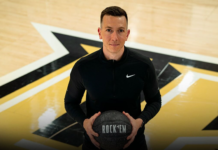It’s 3 a.m. and Gaby Delgado is tossing and turning trying her best to fall asleep, despite the late hour.
Delgado, a sophomore event management major at UCF, has always struggled with sleeping ever since her junior year of high school. She went to the doctor for insomnia and was prescribed sleeping aid but tries not to depend on it every night.
“Having trouble sleeping definitely affects my school. I know I can’t do early classes so I try to schedule afternoon classes that I know I can wake up for,” Delgado said.
The Center for Disease Control and Prevention (CDC) reported in 2013 that 9 million people used a prescription sleep aid in the past 30 days, according to a study done between 2005 and 2010. The report indicted that the use of prescription sleep aid increases with age.
The youngest group, ages 20 to 39, showed about 2 percent use while adults among 80 and older had numbers that rose to about 7 percent.
The report also indicated that use of a sleep aid seemed to increase with the level of education. About 4.4 percent of adults with education above high school reported using sleep aids, while 3.9 percent of adults who graduated from high school reported using sleep aids.
The National Sleep Foundation (NSF) found in a 2013 survey that people who identified themselves as exercisers described their sleeping schedules to be healthier. The NSF surveyed 1,000 people and while only 18 percent said they get regular, vigorous exercise, they reported getting the best sleep.
Ashley Klemka, a UCF senior health science major, said she does not have trouble sleeping at night and thinks that all the credit goes to staying busy throughout the day.
“I work out. Honestly that’s a big stress reliever,” Klemka said. “Also, personally for me, work is a big stress reliever for me and I am very fortunate in that aspect. I also like to be outside, that de-stresses me.”
Jessica Bonney, a sophomore psychology major, finds that she has trouble sleeping regularly and has a prescription sleep aid from her doctor to help. She said that not getting to sleep earlier not only affects her school schedule and schoolwork but makes it harder to get up and enjoy the day.
“I tried vitamins, I exercise when I can and I take baths to try and relax my brain, but for some reason only the sleeping aid works for me,” Bonney said. “It always seems like I can never fall asleep without them.”
Another study, published in the Journal of American College Health, reported that around 73 percent of college students suffer from sleeping problems during their college years. While getting eight hours of sleep is recommended, few college students seems to get these recommended hours.
Zach Colby, a junior majoring in computer sciences, said he doesn’t really have trouble sleeping at night too much. He tries to get around seven and half hours of sleep a night.
“I pretty much just go to sleep or listen to some music and unwind,” Colby said. “But sometimes if I sleep for 12 hours or something I can’t go to sleep the next night.”
Biomedical science freshman Nicholas Feliciano said he usually gets about eight hours of sleep a night and doesn’t have trouble falling asleep.
“I just leave the TV on and go straight to sleep,” Feliciano said.
It is said that many young people develop sleeping troubles because of the stress of the college workload and the participation in college nightlife. But a question remains of just how sleep medication is being used and whether long-term effects could be a problem.
“When I am in bed at night it is just so hard to turn my brain off and not sleeping at night causes me to sleep all day and it then makes me feel lazy and unproductive,” Delgado said. “These sleeping aids help me become a better student, in my opinion, and help me be more active in my sorority and everyday college life.”






